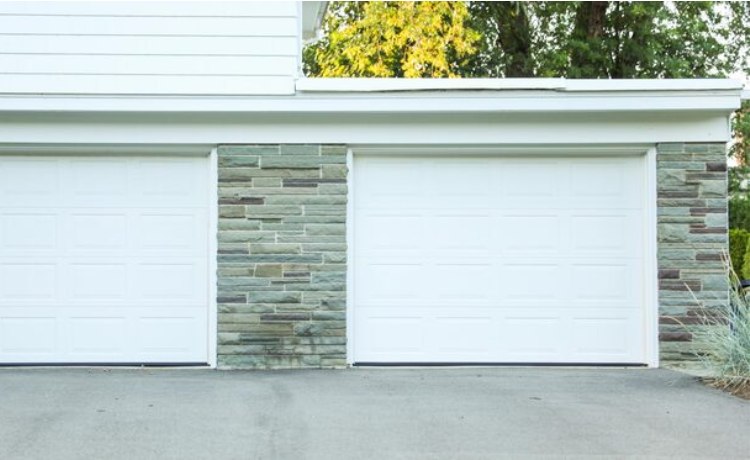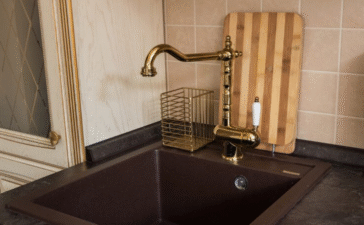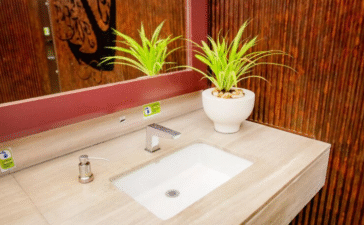A properly installed garage door does more than enhance your home’s curb appeal—it provides security, convenience, and peace of mind for years to come. Whether you’re replacing an old door or installing one for the first time, understanding the installation process can help you make informed decisions about this significant home improvement investment.
This comprehensive guide offers expert advice on everything from choosing between professional and DIY installation to understanding cost factors and selecting the right installation company. You’ll discover why professional garage door installation services often provide the best value, learn about the complexities involved in proper installation, and gain insights that can save you time, money, and potential safety hazards.
Making the right choices during your garage door installation project sets the foundation for reliable operation, reduced maintenance needs, and enhanced home security. Let’s explore the essential information every homeowner should know before starting this important home improvement project.
Why Professional Garage Door Installation is Essential
Professional garage door installation brings expertise that goes far beyond simply hanging a door. Trained installers possess specialized knowledge about garage door alignment, spring tension systems, and safety mechanisms that ensure your door operates smoothly and safely for years to come.
Safety represents the most compelling reason to choose professional installation services. Garage doors typically weigh between 150 and 400 pounds, and the spring systems that counterbalance this weight store tremendous energy. Improper handling during installation can result in serious injury or property damage. Professional installers use specialized tools and follow established safety protocols to manage these risks effectively.
The complexity of modern garage door systems requires technical expertise that most homeowners simply don’t possess. Professional installers understand how to achieve proper garage door alignment, calibrate spring tension for optimal balance, and integrate electrical components safely. They can identify potential issues with your garage opening, recommend structural modifications if needed, and ensure all components work together harmoniously.
Durability and long-term reliability depend heavily on installation quality. Professional installation typically includes proper sealing, precise hardware adjustment, and comprehensive testing that prevents common problems like premature wear, noise issues, and operational failures. This attention to detail during installation translates to fewer repair needs and extended door life, ultimately providing better value for your investment.
Understanding the Cost of Garage Door Installation
The cost of garage door installation varies significantly based on several key factors, with material choice being one of the primary considerations. Steel doors offer durability and security at moderate prices, while wood doors provide aesthetic appeal but require more maintenance and higher initial investment. Aluminum doors offer lightweight operation and corrosion resistance, making them suitable for specific climate conditions.
Door type significantly impacts installation complexity and cost. Sectional doors, which consist of horizontal panels that slide overhead, represent the most common choice due to their space efficiency and ease of automation. Roller doors work well for garages with limited headroom, while custom doors designed for unique architectural requirements command premium pricing due to specialized installation requirements.
Installation factors beyond the door itself contribute substantially to total project costs. Garage door opener installation adds convenience and security but requires electrical work and additional hardware. Structural modifications, such as reinforcing the opening or updating electrical systems, can increase costs considerably. Weather sealing, insulation upgrades, and decorative hardware also influence the final price.
Garage door installation cost calculators available online provide useful starting points for budget planning, though they cannot account for site-specific factors that affect actual installation requirements. These tools typically consider door size, material preferences, and opener specifications to generate price estimates, but professional assessments remain necessary for accurate pricing.
Additional costs often include permit fees in certain municipalities, disposal of old door materials, and potential structural modifications required to accommodate new door specifications. Smart garage door systems with smartphone connectivity and advanced security features represent emerging cost considerations that many homeowners find worthwhile for the added convenience and peace of mind they provide.
How to Choose the Best Garage Door Installation Company
Selecting the best garage door installation company requires careful evaluation of multiple factors that indicate reliability, expertise, and customer satisfaction. Start by researching companies with established reputations in your local market, focusing on those with substantial experience in residential garage door installation services.
Customer reviews and testimonials provide valuable insights into company performance, but evaluate them critically. Look for patterns in feedback rather than isolated complaints, and pay attention to how companies respond to negative reviews. Reputable service providers typically address concerns professionally and work to resolve issues, demonstrating their commitment to customer satisfaction.
Experience and expertise matter significantly in garage door installation. Companies with extensive backgrounds in the industry understand the nuances of different door types, can handle unexpected complications efficiently, and stay current with evolving safety standards and installation techniques. Ask potential contractors about their experience with your specific door type and any unique requirements your installation might involve.
Insurance coverage and warranty protection represent essential considerations when choosing installation companies. Proper insurance protects you from liability if accidents occur during installation, while comprehensive warranties demonstrate company confidence in their workmanship. Reputable companies readily provide proof of insurance and clearly explain warranty terms without hesitation.
Licensing requirements vary by location, but working with properly licensed contractors ensures they meet local standards for competency and business practices. Licensed professionals typically carry appropriate insurance, understand local building codes, and maintain accountability through regulatory oversight.
Request detailed written estimates from multiple companies to compare pricing and scope of work. Quality contractors provide comprehensive proposals that outline all costs, specify materials and labor included, and establish clear timelines for completion. Be cautious of estimates that seem significantly lower than others, as they may indicate corner-cutting or hidden costs that emerge later.
DIY Garage Door Installation: Can You Do It Yourself?
DIY garage door installation appeals to many homeowners seeking to reduce costs and gain hands-on experience with their home improvement projects. While possible for mechanically inclined individuals, this approach requires careful consideration of safety risks, technical requirements, and potential complications that can arise during installation.
The basic installation process involves several critical steps that must be executed precisely for safe and reliable operation. After removing the old door system, you’ll need to install horizontal tracks with exact alignment, mount vertical tracks with proper spacing, and carefully hang door sections while managing their substantial weight. Spring installation represents the most dangerous aspect of DIY installation, as these components store tremendous energy and can cause severe injury if handled improperly.
Safety considerations extend throughout every phase of DIY installation. Garage door installation safety requires appropriate tools, including clamps for securing door sections, winding bars for spring adjustment, and safety glasses for eye protection. Never attempt to adjust torsion springs without proper tools and knowledge, as the stored energy can cause springs to unwind violently and cause serious injury.
Working with a helper becomes essential for managing heavy door sections and ensuring precise alignment during installation. Many installation steps require simultaneous coordination that’s impossible to achieve working alone, and having assistance available proves crucial if problems arise during the process.
Importance of Garage Door Opener Installation
Garage door opener installation transforms manual garage doors into convenient, secure access systems that enhance daily life while providing additional safety features. Modern automatic garage door openers offer more than basic convenience—they include security features, smartphone connectivity, and safety mechanisms that protect people and property.
Convenience benefits extend beyond simple button-operated access. Contemporary opener systems integrate with home automation networks, allowing remote monitoring and control through smartphone applications. This connectivity enables homeowners to verify door status, receive alerts about unexpected operation, and grant access to visitors or service providers remotely.
Security advantages include rolling code technology that prevents unauthorized access through code grabbing devices, automatic locking mechanisms that secure doors when closed, and vacation modes that disable remote operation when away from home for extended periods. These features provide peace of mind and help protect valuable items stored in garages.
Opener types vary significantly in operation, noise levels, and maintenance requirements. Belt-drive openers provide quiet operation ideal for homes with bedrooms adjacent to garages, while chain-drive systems offer durability and value for detached garage applications. Direct-drive openers minimize moving parts for reduced maintenance needs, and smart openers incorporate advanced connectivity and monitoring features.
The installation process for automatic systems requires electrical connections, proper alignment with door systems, and calibration of safety features such as auto-reverse mechanisms. Professional garage door opener installation ensures these components integrate properly with your door system and meet current safety standards that protect against accidents and injuries.
Safety features mandated by current regulations include automatic reverse systems that detect obstructions and reverse door direction, manual release mechanisms that allow emergency operation during power outages, and photoelectric sensors that prevent doors from closing when objects interrupt the light beam. Proper installation and testing of these safety systems requires technical knowledge and specialized tools.
How Long Does Garage Door Installation Take?
Garage door installation time varies based on several factors, but standard residential installations typically require four to six hours for completion by professional teams. This timeframe includes removal of existing doors, installation of new systems, and comprehensive testing to ensure proper operation and safety compliance.
Several factors influence installation duration significantly. Single-car garage doors generally require less time than double-car installations due to reduced size and complexity. Custom doors or those requiring structural modifications may extend installation time considerably, as may integration with existing home automation systems or complex opener configurations.
Weather conditions affect installation schedules, particularly for exposed garage openings where rain or extreme temperatures can create safety hazards or compromise installation quality. Professional installers typically reschedule installations during severe weather to ensure optimal working conditions and protect both workers and equipment.
Preparation steps can minimize installation delays and ensure smooth project completion. Clear the garage area of vehicles and stored items, ensure electrical power availability for opener installation, and verify that pets are secured away from the work area. Having existing door specifications and preferred settings available helps installers prepare appropriate tools and materials in advance.
Complex installations involving structural modifications, electrical upgrades, or integration with smart home systems may require additional time or multiple visits to complete properly. Discuss timeline expectations with your installer beforehand to understand any factors that might extend the standard installation duration.
Some installations may reveal unexpected complications such as damaged framing, electrical issues, or structural problems that require attention before door installation can proceed safely. While these discoveries can extend project timelines, addressing underlying problems ensures reliable long-term operation and prevents future complications.
Also check: “Bedroom Size“
Making the Right Choice for Your Home
Professional garage door installation provides significant advantages in safety, reliability, and long-term performance that typically justify the investment for most homeowners. The expertise required for proper alignment, spring adjustment, and safety system calibration makes professional installation the recommended choice for ensuring optimal door operation and family safety.
When evaluating your options, consider not only immediate costs but also long-term value including warranty protection, reduced maintenance needs, and reliable operation. Professional installation often includes service guarantees and ongoing support that can prove valuable if issues arise after installation completion.
Ready to move forward with your garage door installation project? Start by researching reputable installation companies in your area, requesting detailed estimates, and asking about warranty coverage and service support. Take time to understand what’s included in installation services and what additional costs might apply for your specific situation.
Professional garage door installation represents an investment in your home’s security, convenience, and value that pays dividends through years of reliable operation and peace of mind.
Frequently Asked Questions
How much does it cost to replace a garage door?
Garage door replacement costs typically range from $600 to $2,000 for the door alone, with professional installation adding $300 to $500 to the total project cost. Factors affecting price include door size, material choice, insulation levels, and decorative features. Custom doors and those requiring structural modifications can increase costs significantly.
What’s the best type of garage door for my home?
The best garage door depends on your climate, architectural style, and budget. Steel doors offer durability and security at moderate costs, while wood doors provide natural beauty but require more maintenance. Consider insulated doors if your garage is attached to your home or if you use it as workspace, as they provide energy efficiency and noise reduction.
Can I install a garage door opener on an existing door?
Most existing garage doors can accommodate opener installation, provided they’re in good mechanical condition and properly balanced. However, very old or damaged doors may require replacement before opener installation for safety and reliability reasons. Professional assessment can determine compatibility and identify any necessary modifications.
How do I know if my garage door is properly balanced?
A properly balanced garage door should stay in place when manually lifted halfway and released. If the door falls or rises from this position, spring adjustment is needed. Never attempt to adjust springs yourself, as they store dangerous amounts of energy that can cause serious injury.
What maintenance does a new garage door require?
Regular maintenance includes monthly visual inspection of springs, cables, and hardware for wear or damage, lubrication of moving parts every six months, and annual professional tune-ups. Keep tracks clean and properly aligned, test safety features monthly, and address any unusual noises or operational changes promptly.
How long do garage doors typically last?
Quality garage doors with proper installation and maintenance typically last 15 to 30 years, depending on usage frequency, weather exposure, and maintenance quality. Steel and aluminum doors generally outlast wood doors, while proper installation and regular maintenance significantly extend door life regardless of material.
Do I need permits for garage door installation?
Permit requirements vary by municipality, with some areas requiring permits for door replacement while others only require them for new installations or structural modifications. Check with your local building department to understand requirements in your area, as unpermitted work can create problems during home sales or insurance claims.
What should I do if my new garage door makes noise?
Some noise is normal during the break-in period for new doors, but persistent or excessive noise may indicate alignment issues, inadequate lubrication, or hardware problems. Contact your installer if noise problems persist beyond the first few weeks of operation, as warranty coverage typically includes addressing such issues.












